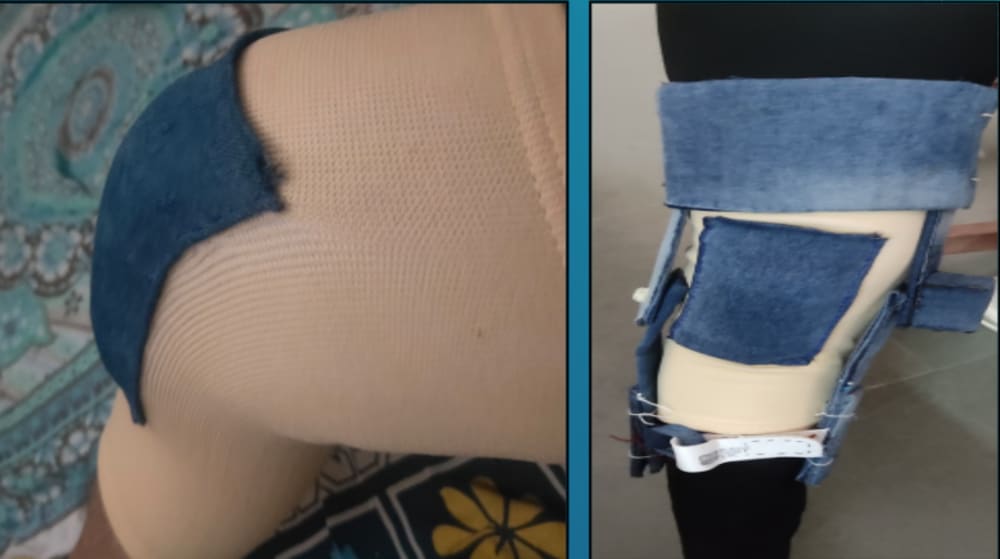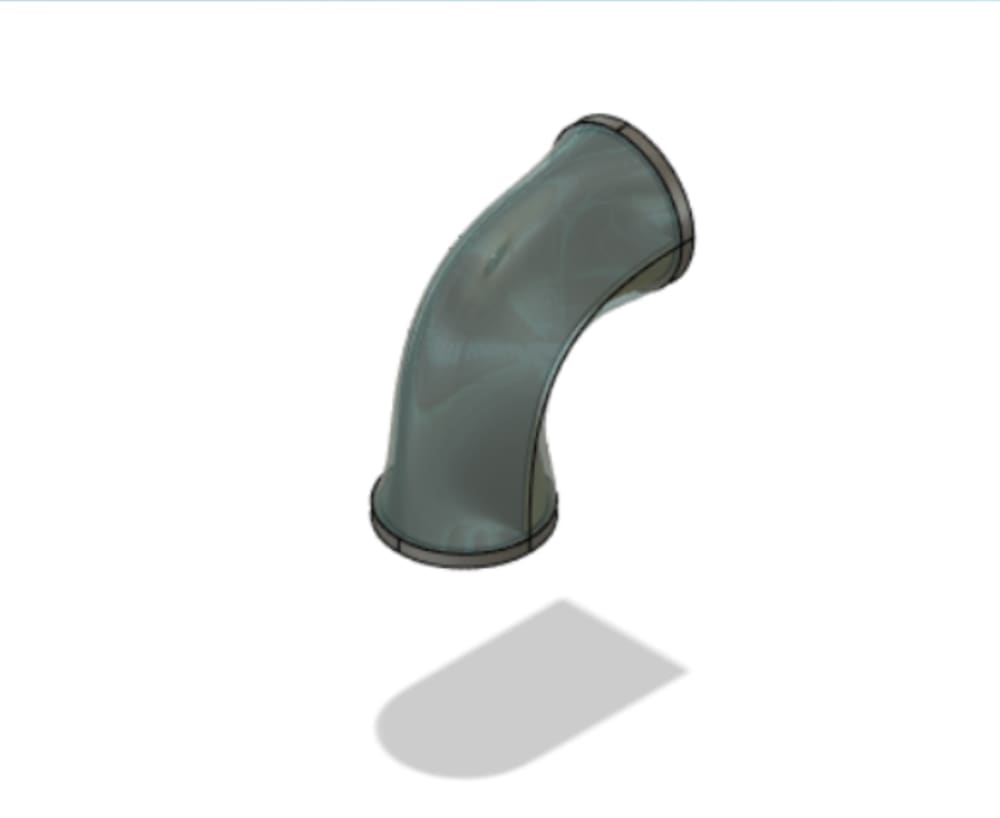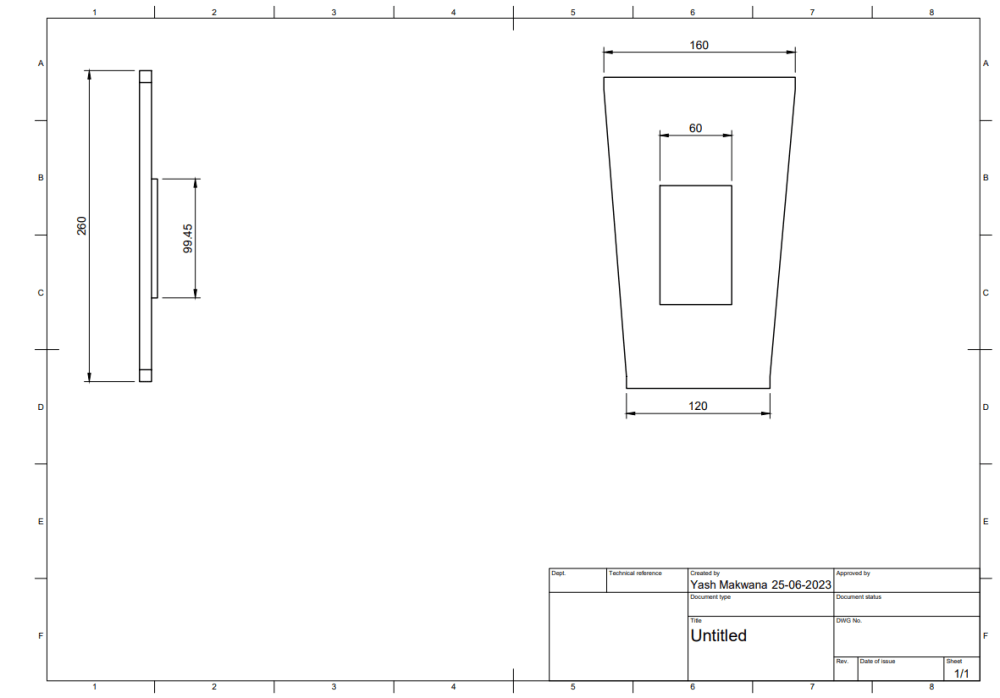Our Research paper link: - https://www.ijfmr.com/papers/2023/3/3834.pdf
UNDP Sustainable Goal 3: Promote healthy lives and well-being for all. Includes reproductive health, discase prevention, universal healthcare access, and affordable drugs/vaccines. Average person takes 8.000-10.000 steps daily, equaling over 115,000 journeys around Earth. Wearable devices offer non-invasive monitoring and feedback during treatment. The current scenario of knee pain can affect people in their 30's as easily as those in their 60's and 70's. As the elderly population continues to rise, accommodating more patients in hospitals becomes increasingly challenging due to high demand for services. The focus will shift from post-accident care to preventative care, particularly for the population experiencing knee pain.
Our project aims to provide relief from knee pain through the use of hot- or cold-water therapy. We have designed a knee brace that incorporates a water bag-like structure, allowing users to manually pour hot or cold water into it based on their specific needs or recommendations provided by their doctor. By wearing this brace, individuals can engage in regular activities such as walking, running, or performing daily tasks while receiving continuous hot or cold treatment directly on their knees.
The main advantage of our product is its versatility, as it can be used for both hot and cold therapy. Hot water therapy involves applying heat to the knee, which has been found to raise tissue temperature, soften surrounding tissues, reduce tissue viscosity, increase connective tissue extensibility, alleviate pain, and improve joint mobility. On the other hand, cold water therapy, also known as cryotherapy, involves the application of cold temperatures to reduce inflammation, numb pain, and promote healing, By incorporating both hot and cold treatment options into a single device, our product offers individuals the flexibility to choose the therapy that best suits their needs at any given time.
Cryotherapy (Cold Therapy): In cryotherapy, cold temperatures are applied to the affected area to reduce pain and inflammation. The typical temperature range for cold therapy is between 5°C and 15°C (41°F and 59°F). Ice packs, ice baths, or specialized devices that emit cold temperatures may be used.
Thermotherapy (Heat Therapy): Thermotherapy involves the application of heat to the knee to promote relaxation, increase blood flow, and alleviate pain. The temperature range for heat therapy can vary depending on the method used. Generally, temperatures between 40°C and 45°C (104°F and 113°F) are considered safe and effective. Heat may be applied through warm towels, heating pads, hot water bottles, or heat wraps.
As knee pain can affect individuals of all age groups, it is essential to shift the focus towards preventative care, especially considering the rising elderly population. By providing a wearable knee brace that incorporates hot and cold water therapy, we aim to address the increasing demand for knee pain relief services. Our innovative approach combines traditional treatment methods with advanced technologies to offer a convenient and effective solution for individuals experiencing knee pain. With our product, users can regain their mobility, alleviate discomfort, and improve their overall quality of life.
Like this entry?
-
About the Entrant
- Name:Hemil Prajapati
- Type of entry:teamTeam members:
- Yash Makwana
- Aksh Patel
- Rajdeepsinh Rajput
- Kunalsinh Kathia
- Harsh Ghediya
- Software used for this entry:Fusion360, SolidWorks.
- Patent status:none









